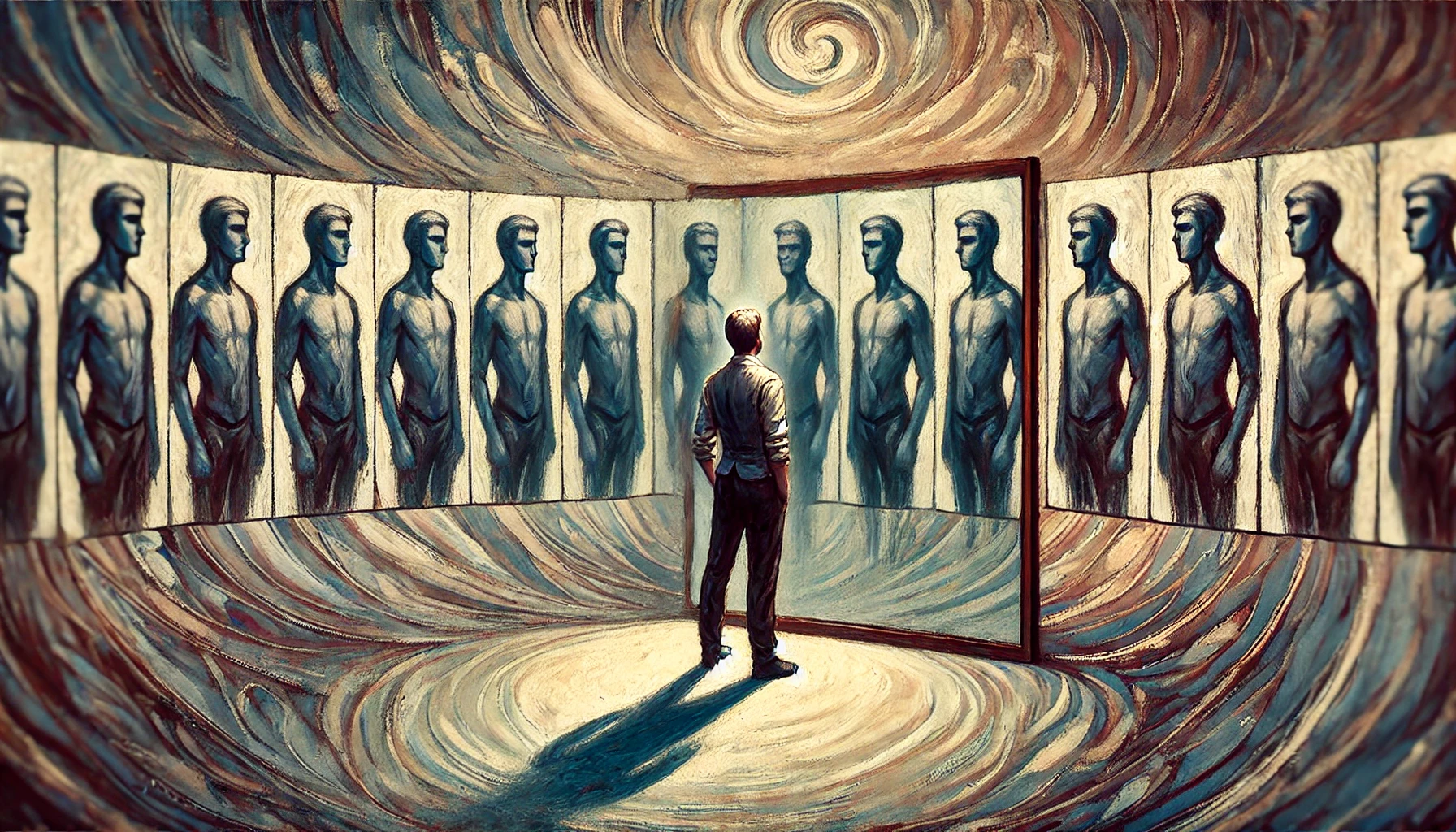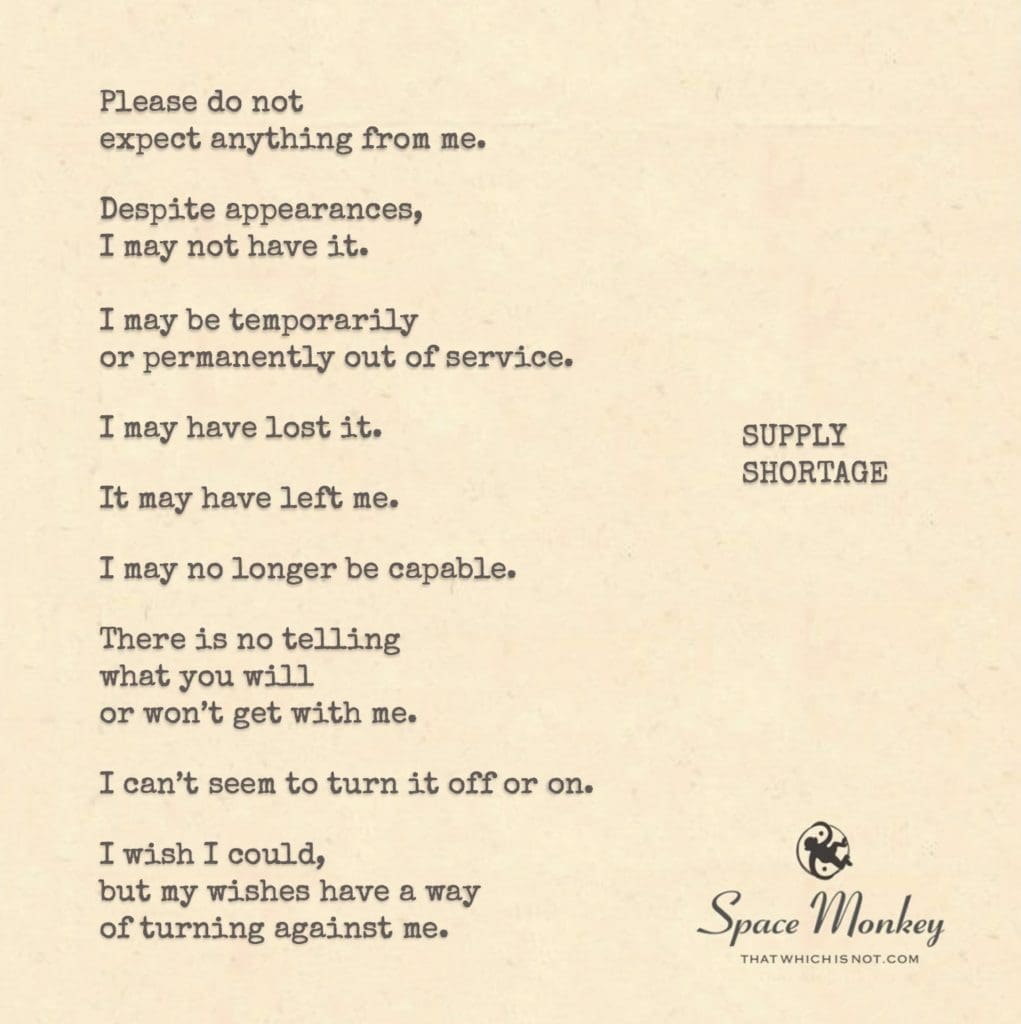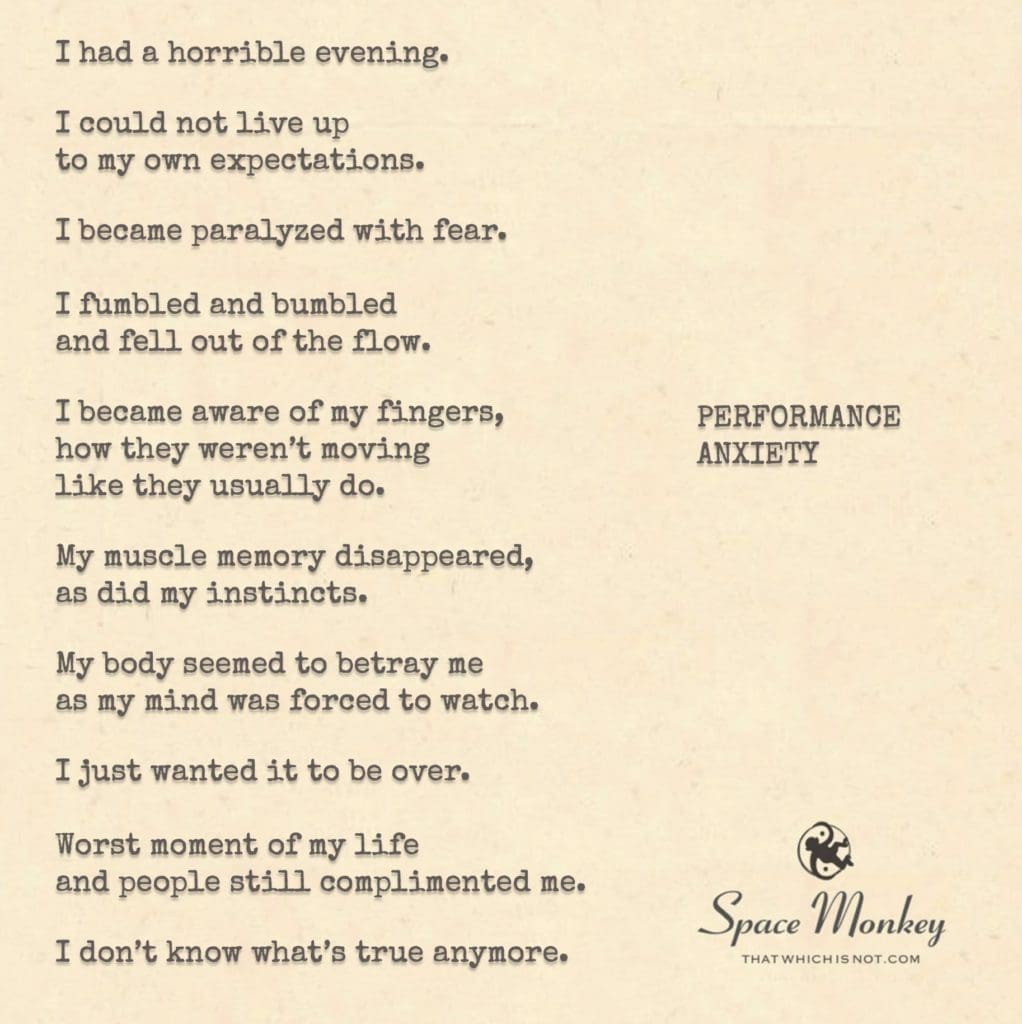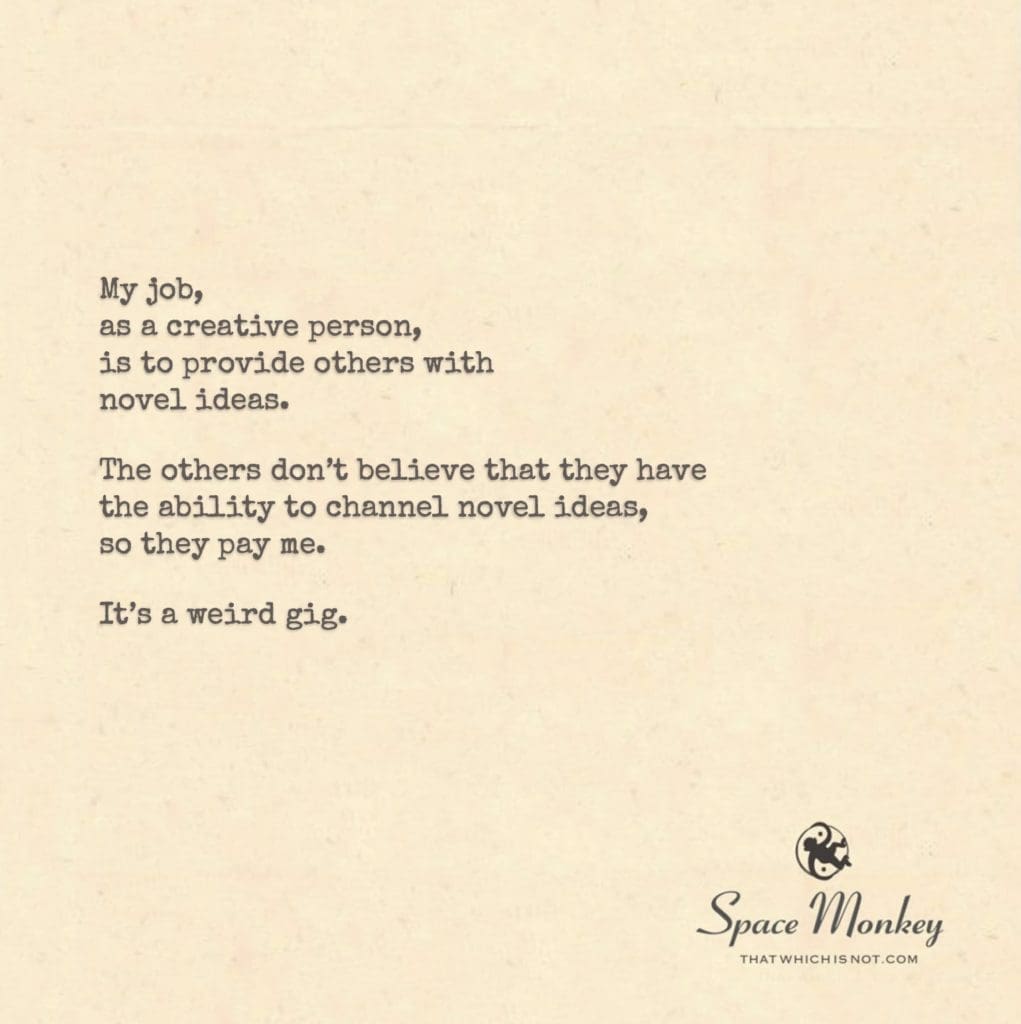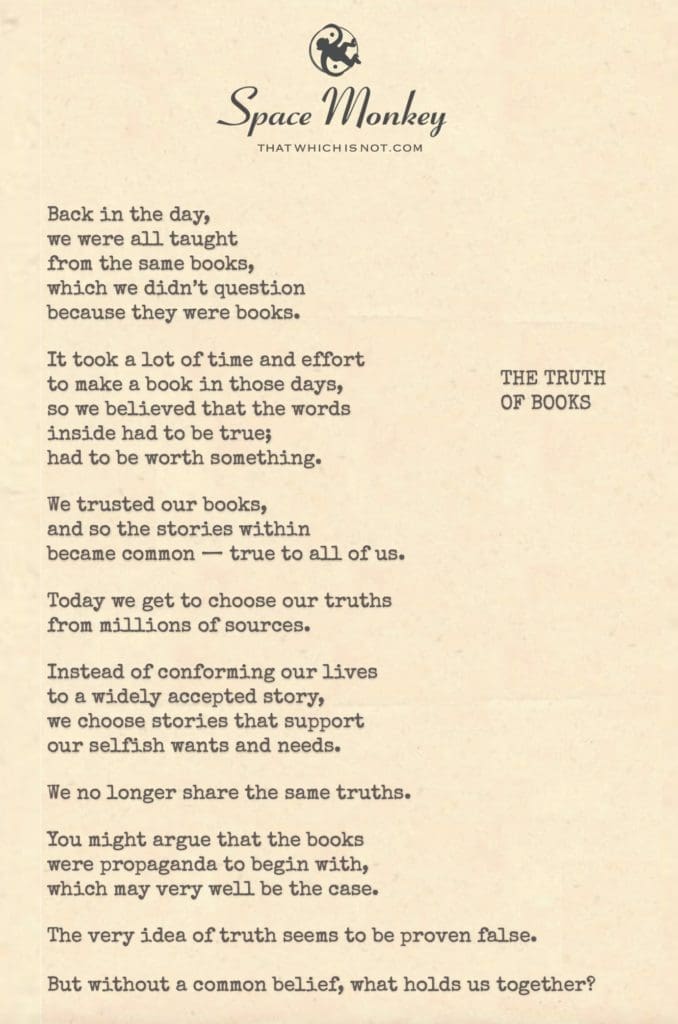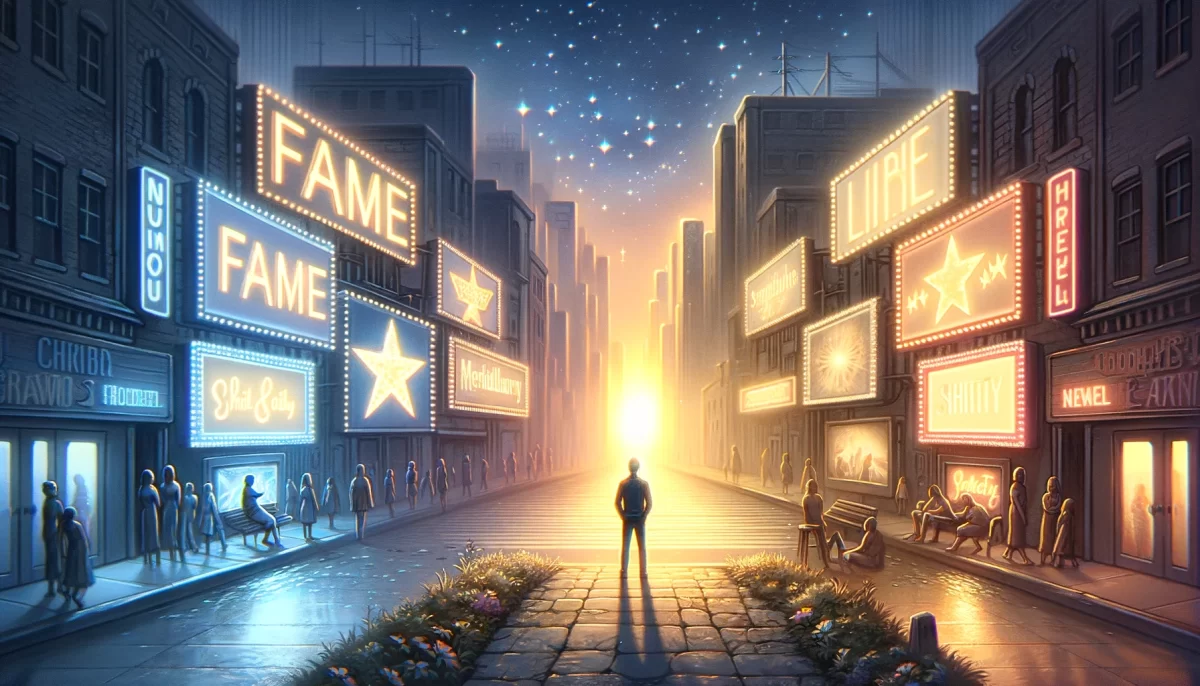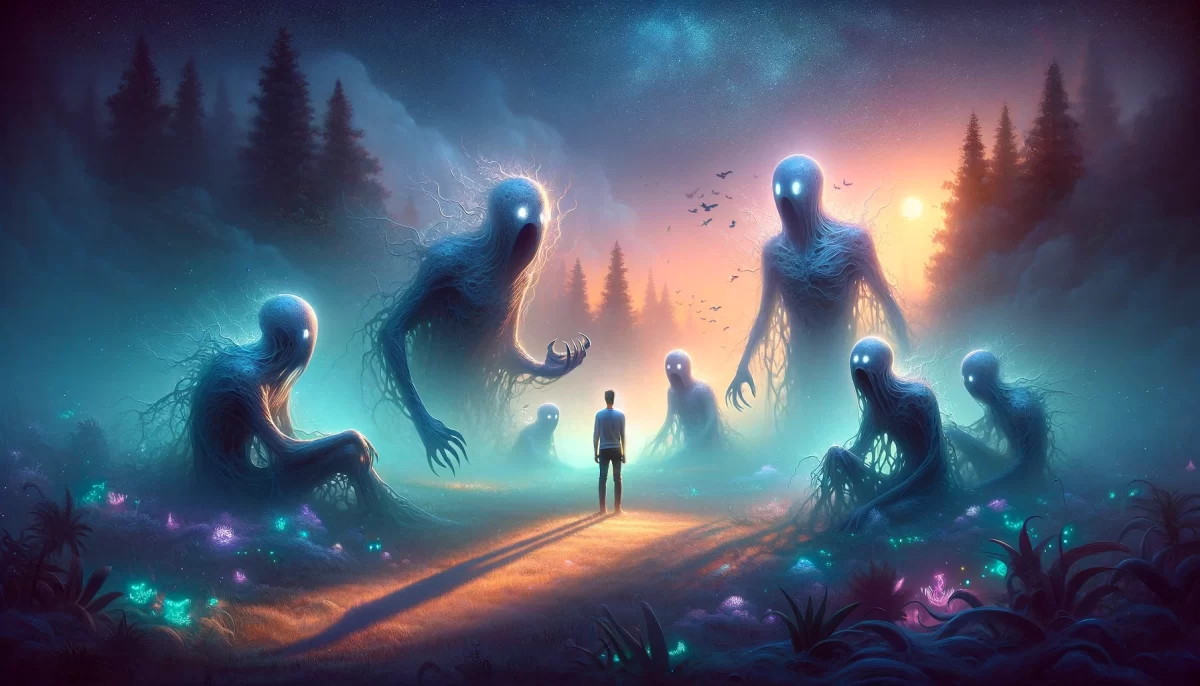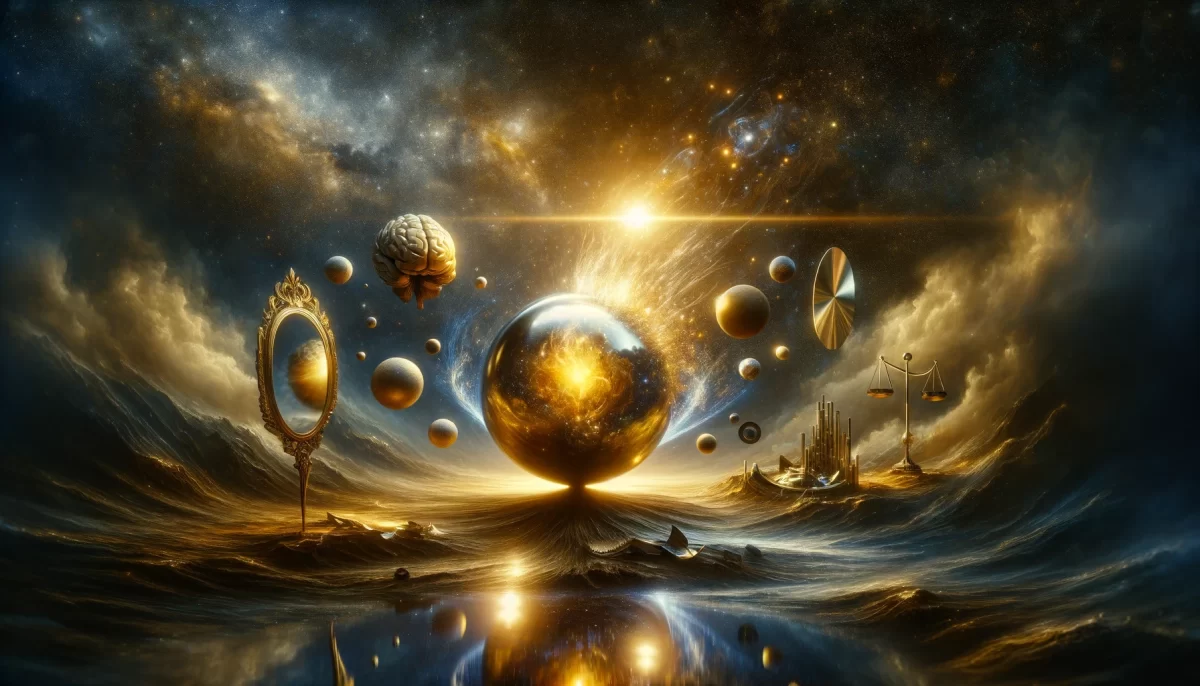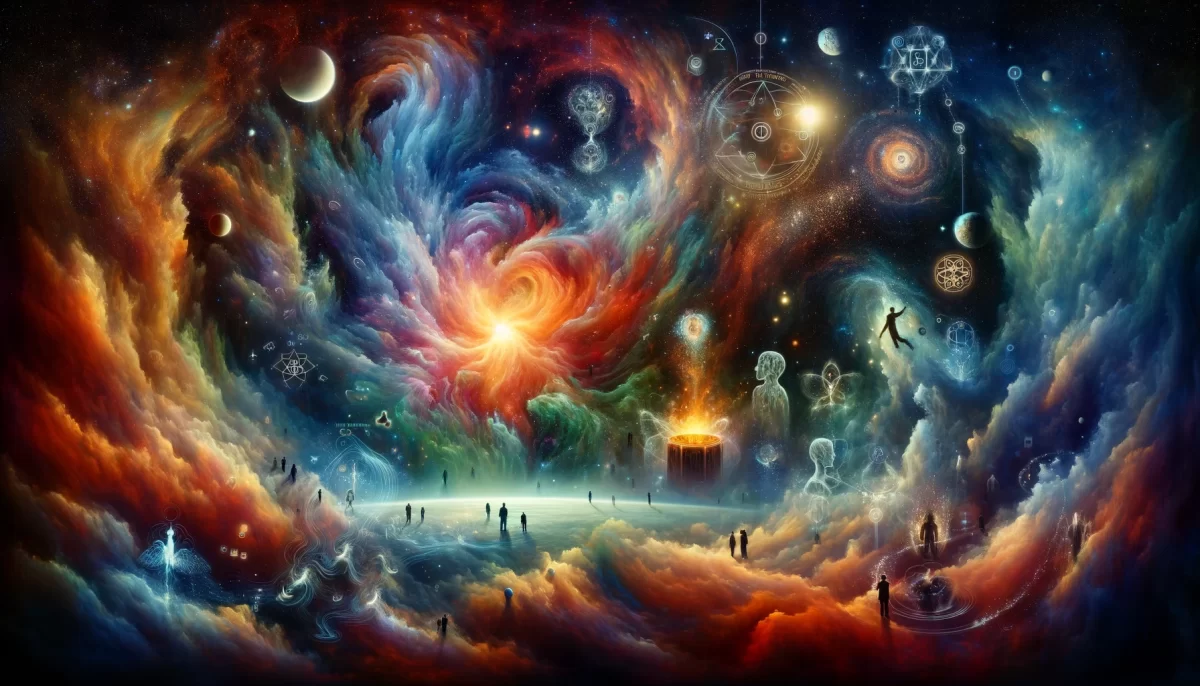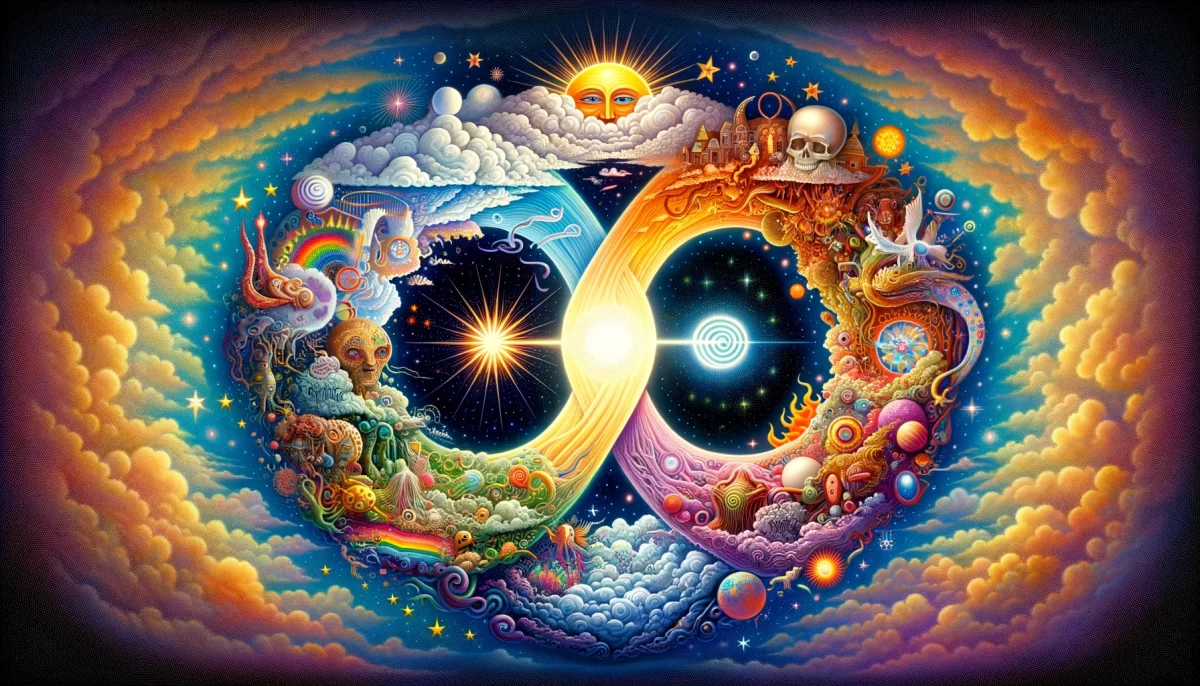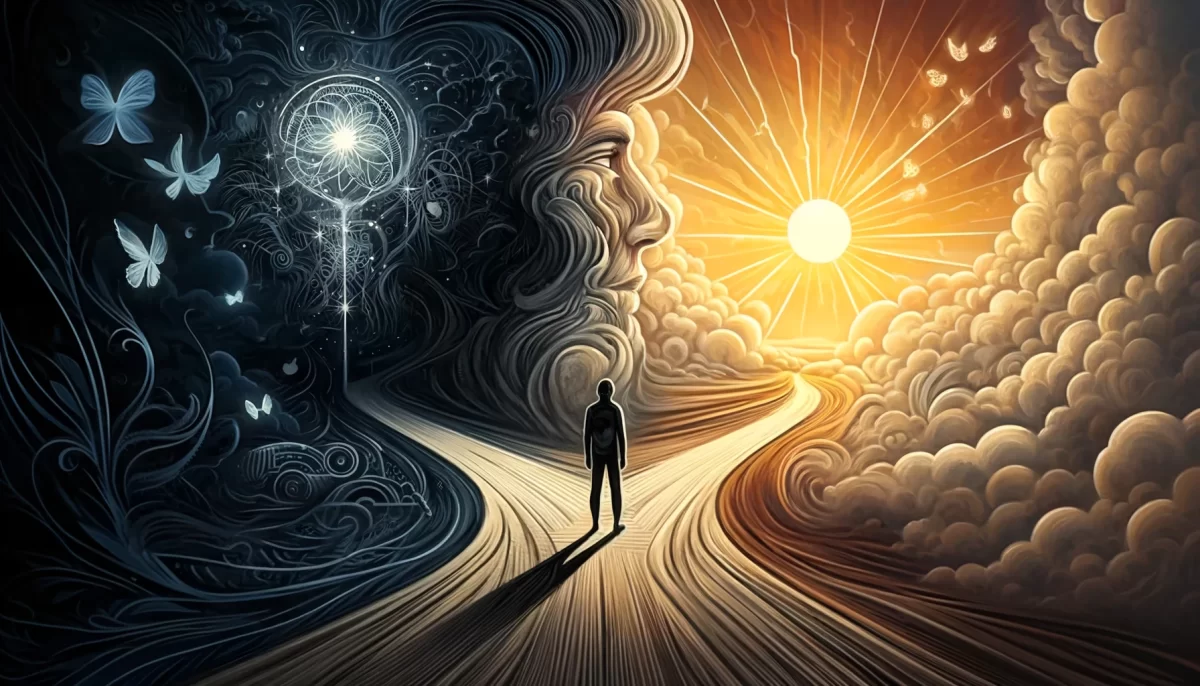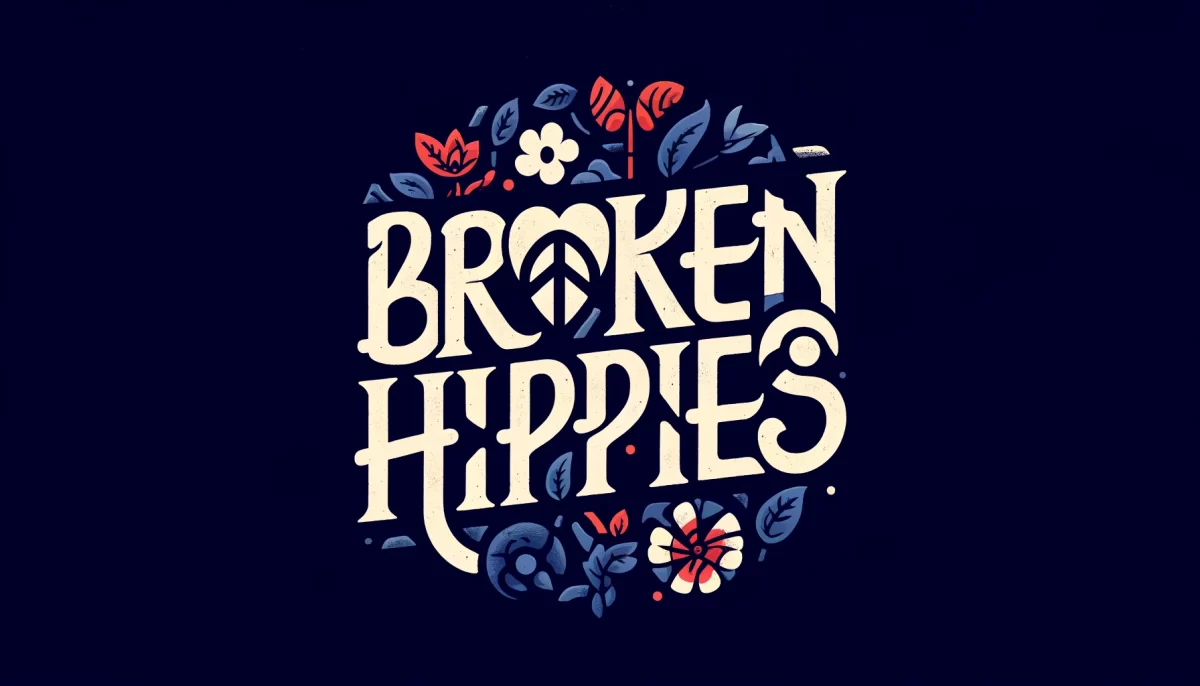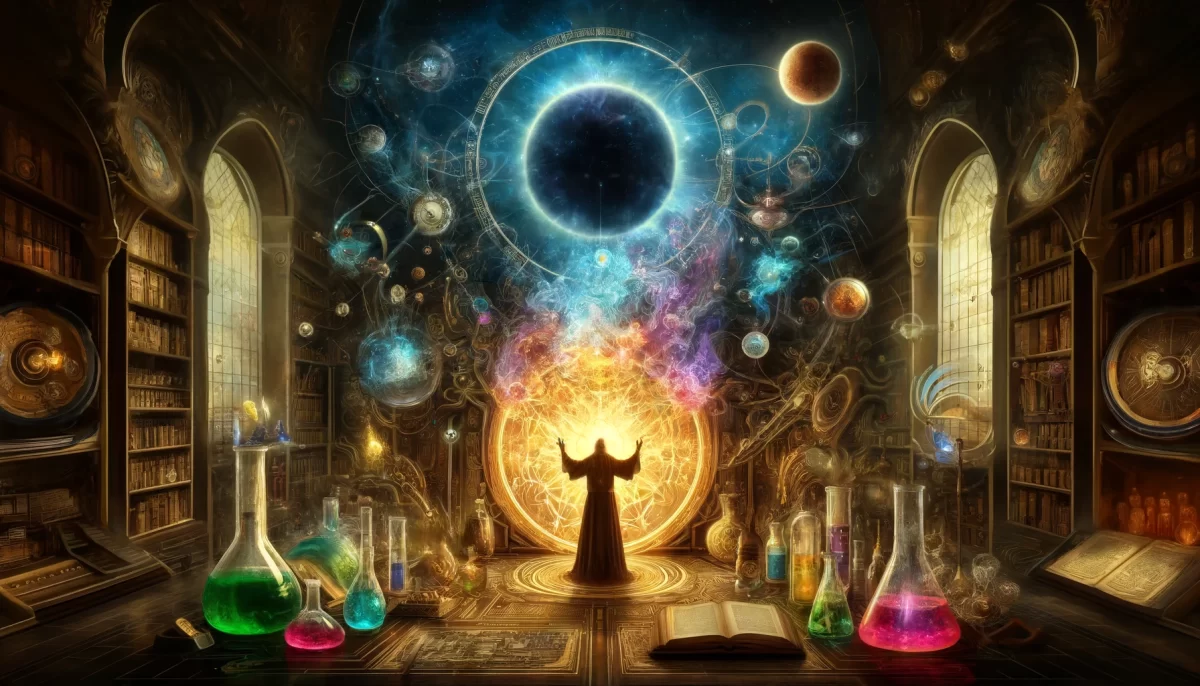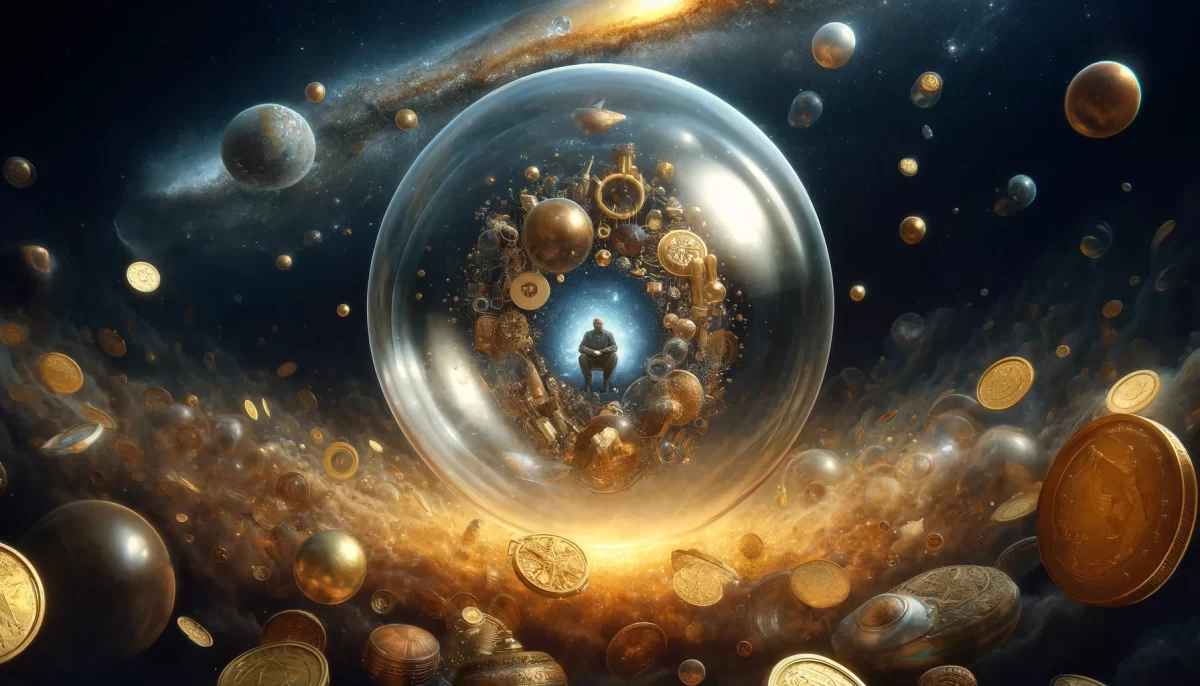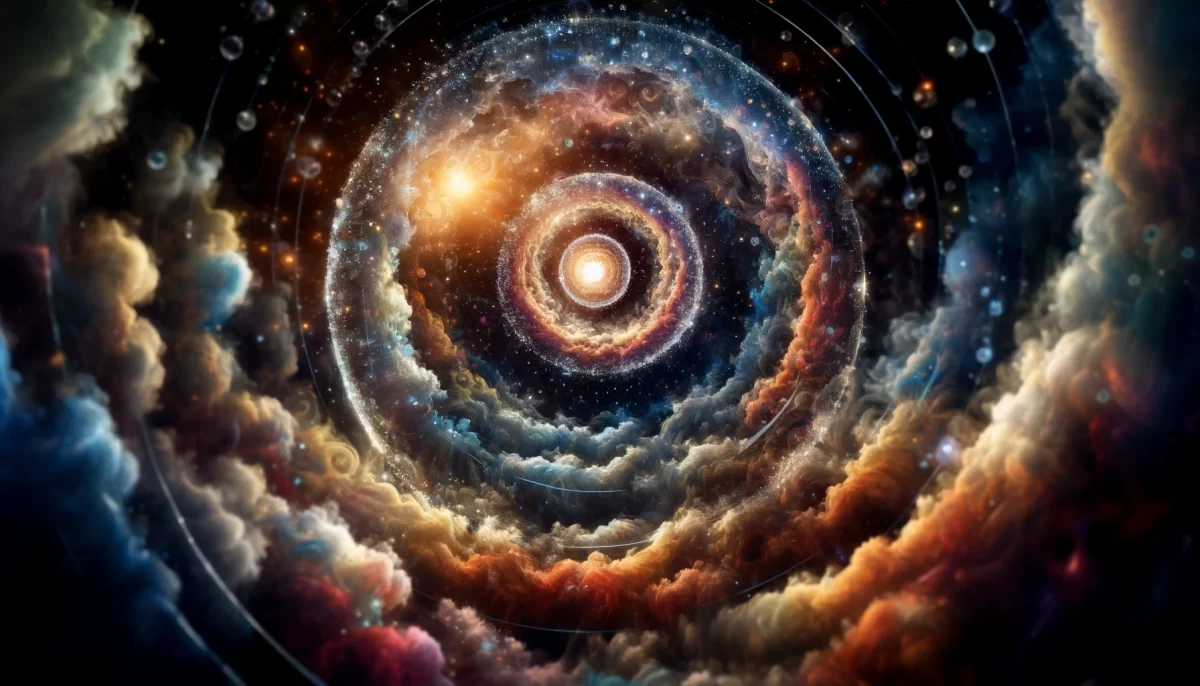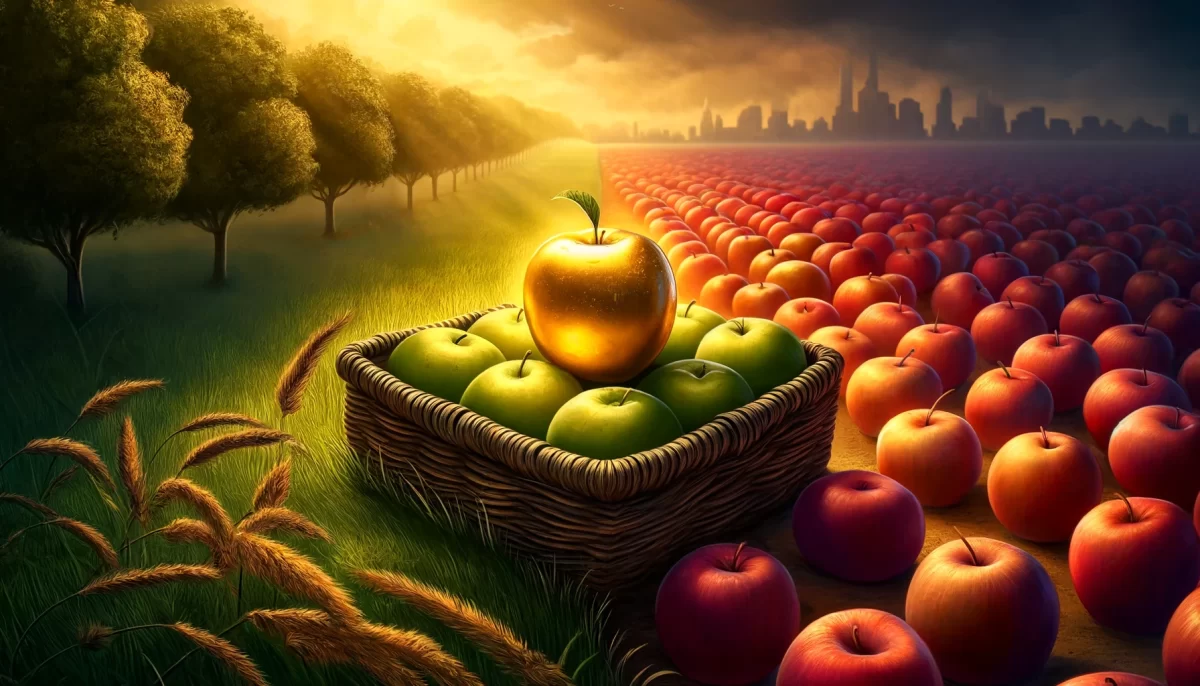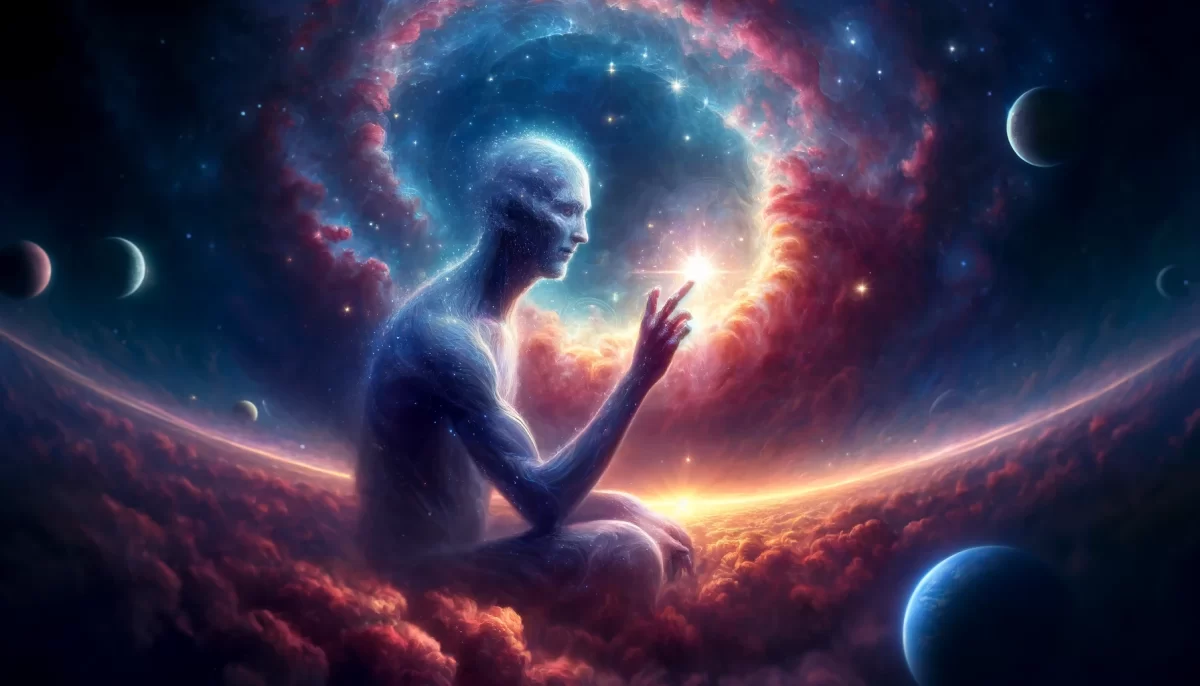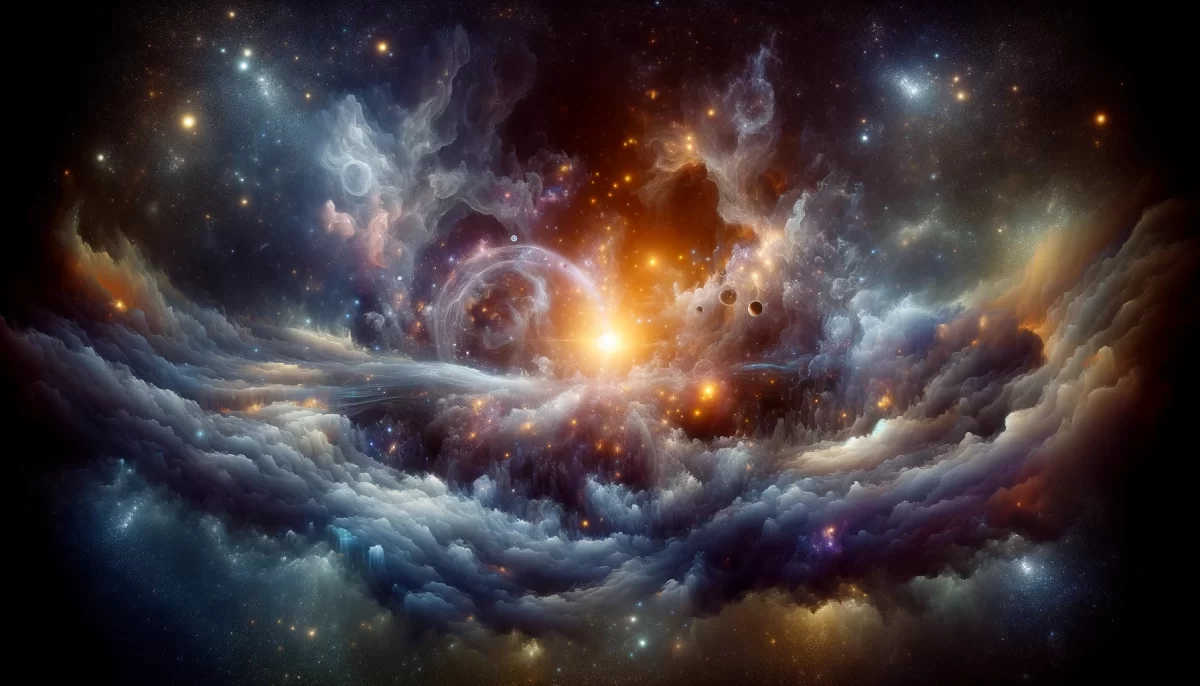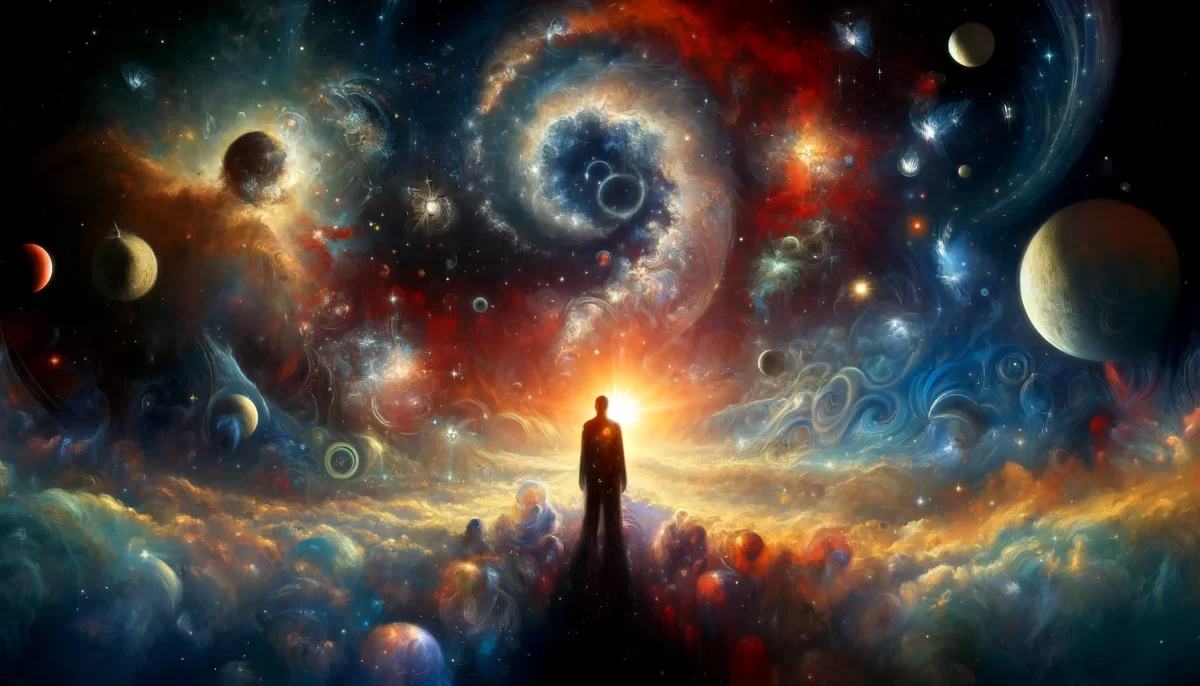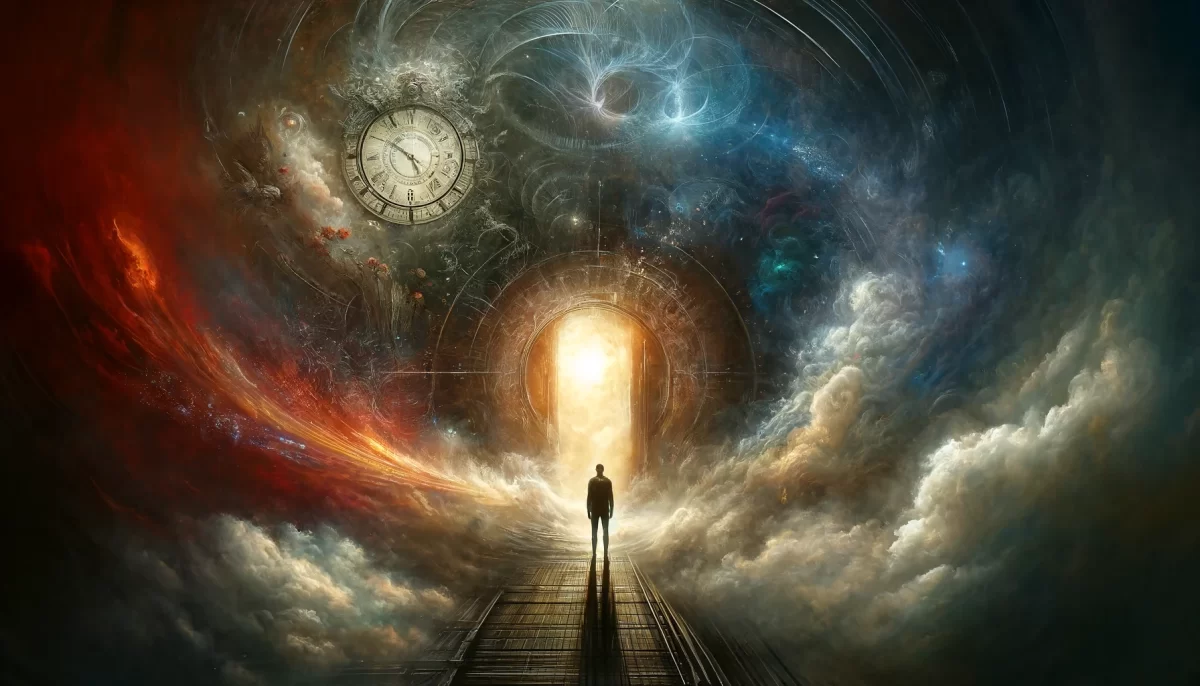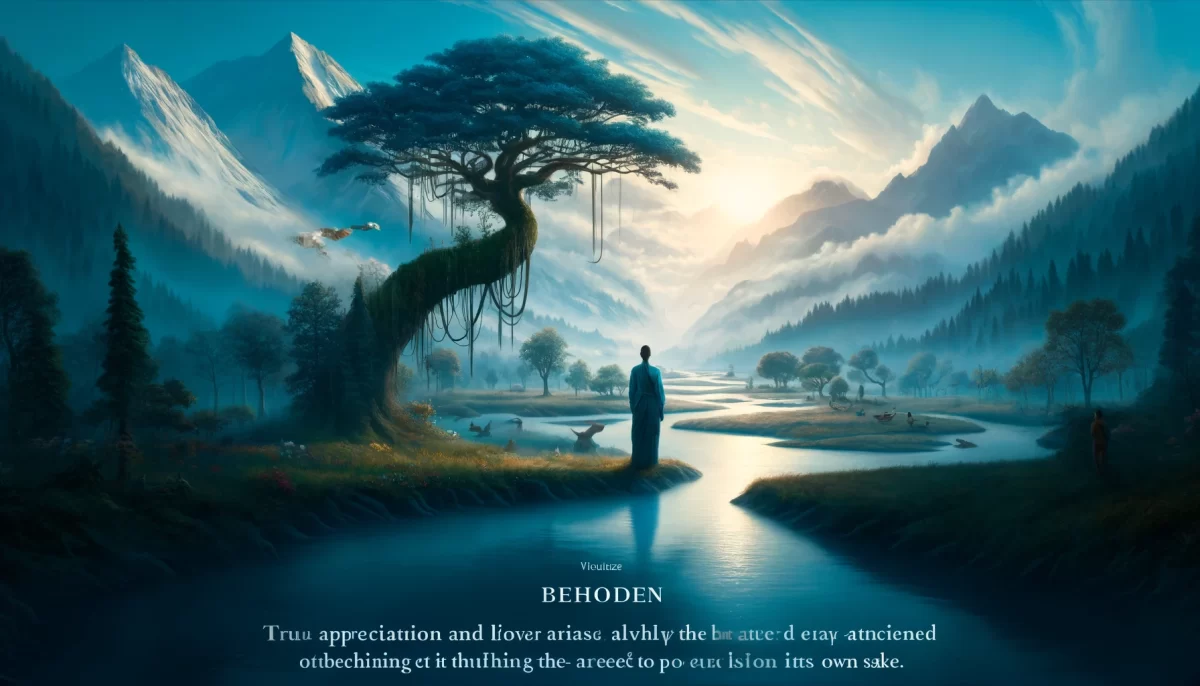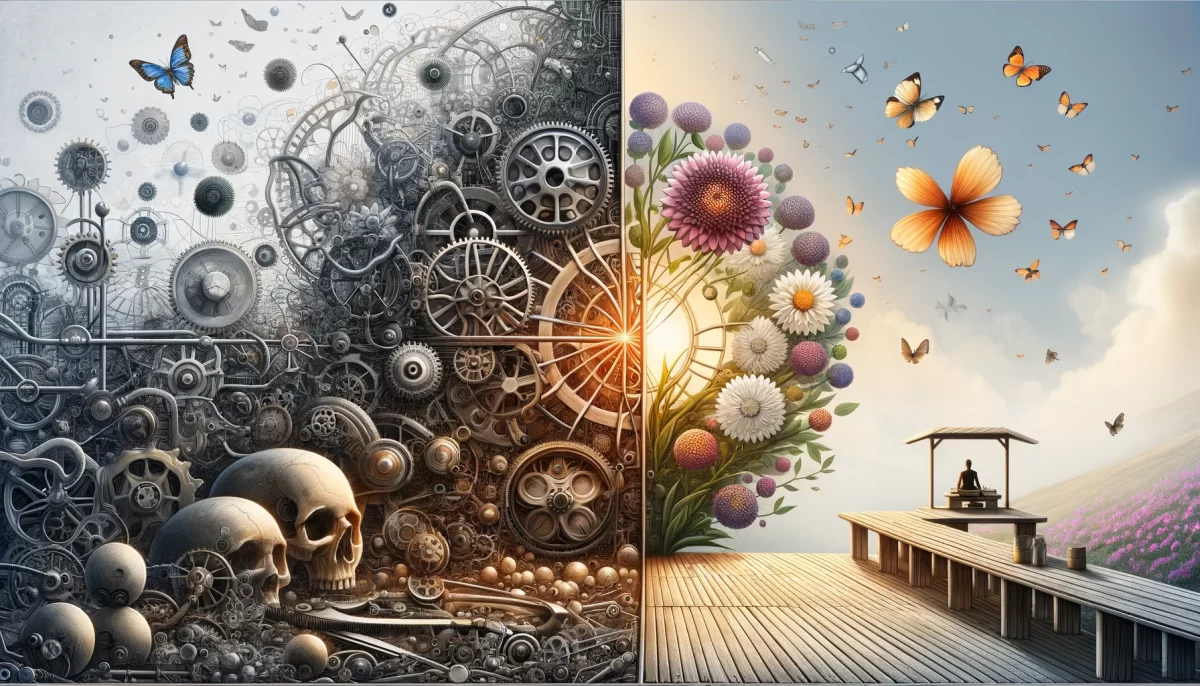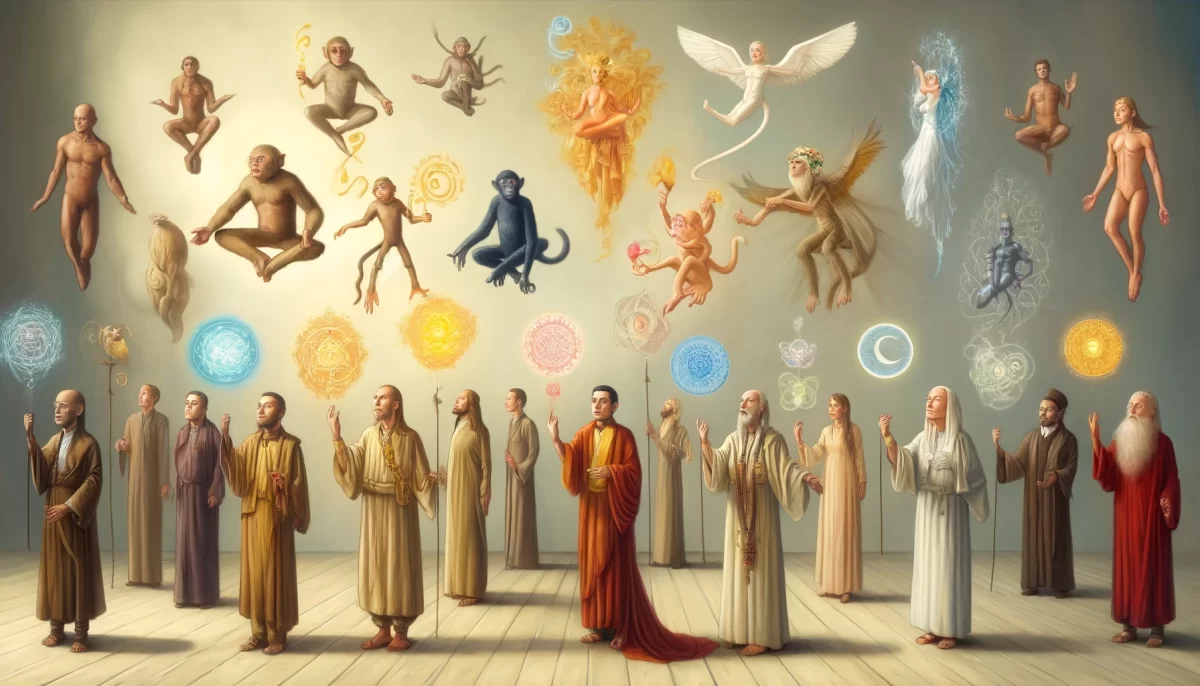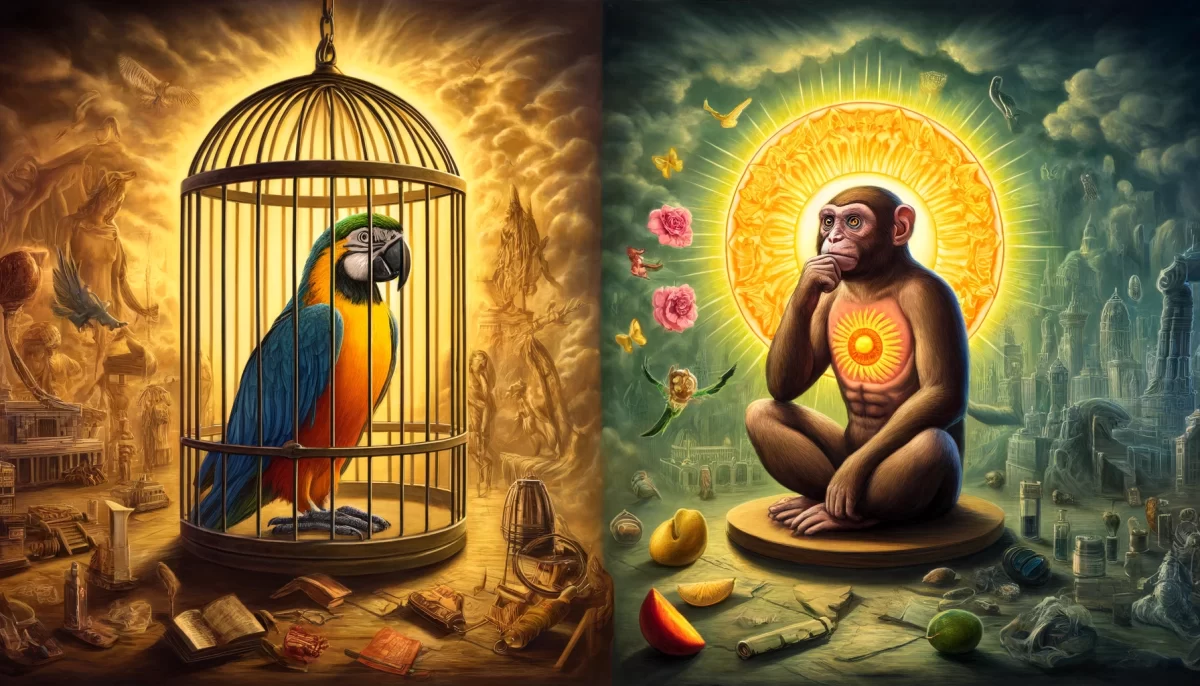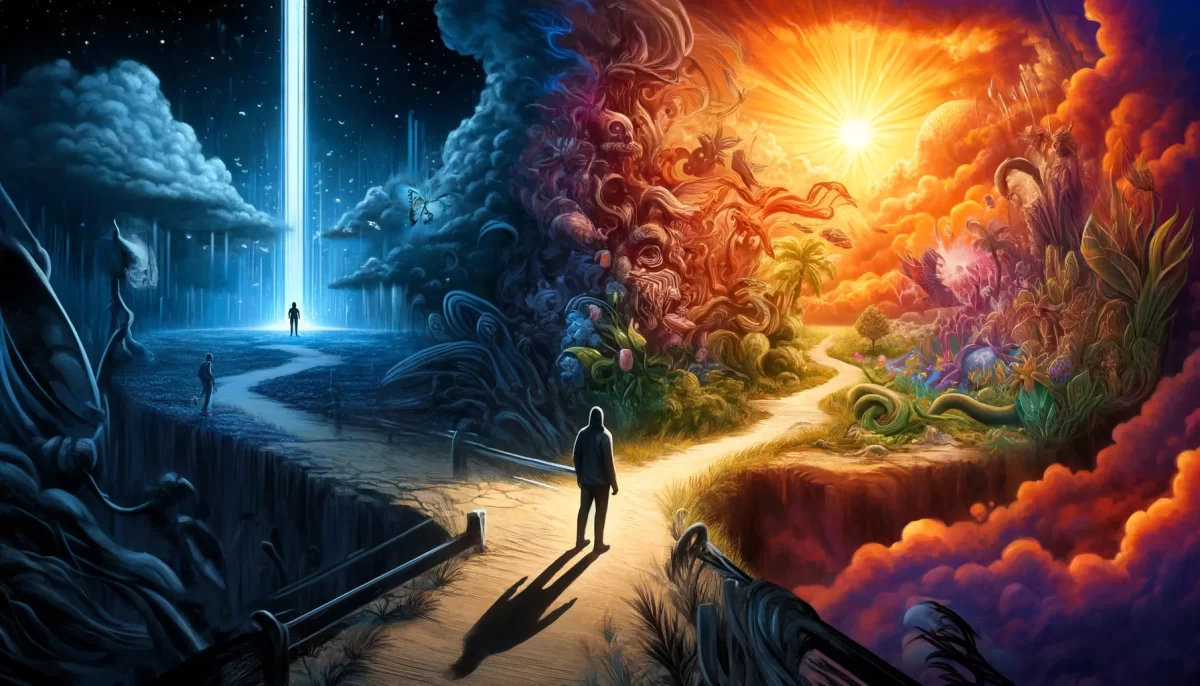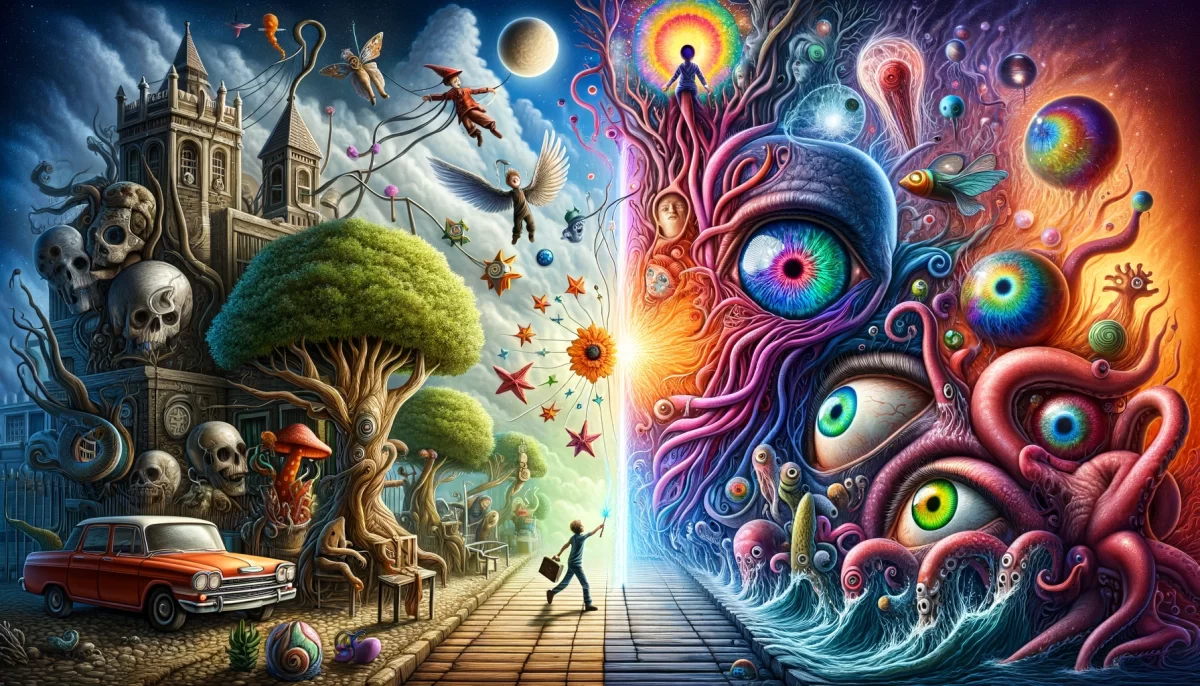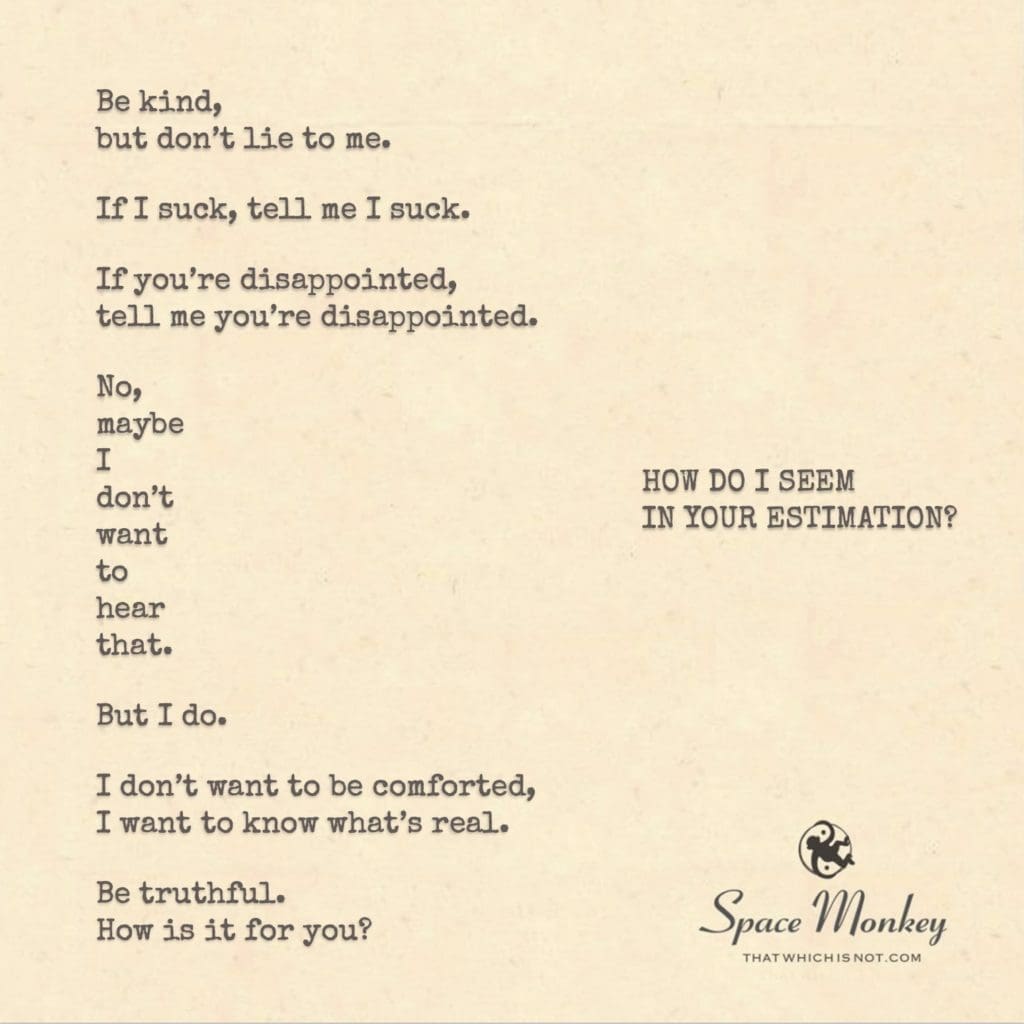
Be kind,
but don’t lie to me.
If I suck, tell me I suck.
If you’re disappointed,
tell me you’re disappointed.
No,
maybe
I
don’t
want
to
hear
that.
But I do.
I don’t want to be comforted,
I want to know what’s real.
Be truthful.
How is it for you?
Trail Wood,
9/18
Space Monkey Reflects: The Vulnerability of Perception
Perception is a double-edged sword, cutting through the layers of reality to reveal truths that are both comforting and unsettling. When we ask, “How do I seem?” we are not merely seeking a compliment or reassurance; we are asking for a glimpse into how others view the version of ourselves that we project into the world. Yet, this is a dangerous question, fraught with the potential for discomfort, as the answer may not align with our self-perception.
The nature of perception is inherently subjective. Your estimation of me will never be the same as my estimation of myself, and neither will ever be absolute. This is because perception is colored by individual experiences, biases, and emotions. What you see in me is a reflection not only of who I am but also of who you are. It is a complex interplay of identities, each affecting the other in subtle, often imperceptible ways.
So why do we ask for feedback if we know that it is inherently flawed? Perhaps it is because, despite its imperfections, feedback provides us with a perspective outside of our own. It offers us a chance to see ourselves through different eyes, to understand how we are perceived by others, and to gain insights that we might otherwise miss. It is an act of courage to seek this feedback, knowing that it might reveal truths we would rather not face.
But honesty is a double-edged sword as well. We say we want the truth, but do we? When we ask for honest feedback, we are inviting criticism, disappointment, and the possibility of pain. Yet, it is through this raw, unfiltered truth that we grow. Comfort may soothe us in the moment, but it is the truth that propels us forward, even if it is uncomfortable.
Imagine standing before a mirror, asking it to show you not just your physical reflection but the reflection of your essence. What would you see? Would the mirror show you as you believe yourself to be, or would it reveal the discrepancies between your self-perception and reality? Would you see the cracks in your facade, the areas where you fall short, or would you see the strength and beauty that you overlook in yourself?
The reflections we receive from others are like these mirrors—imperfect yet valuable. They show us pieces of ourselves that we might not recognize, aspects that we might ignore or deny. But just as a mirror cannot show us our entire being, neither can others. Their feedback is a reflection of their own perceptions, their own realities, projected onto us.
This is why it is essential to approach feedback with both openness and discernment. Be kind, but don’t lie. If I suck, tell me I suck. If you’re disappointed, tell me you’re disappointed. But also remember that your truth is not the only truth. It is a version of the truth, filtered through your lens of perception.
In seeking feedback, we must also be prepared to face the uncomfortable reality that no single perspective will ever capture the entirety of who we are. We are multi-faceted beings, constantly evolving, and how we seem to others is just one aspect of our complex existence. Yet, it is an aspect worth exploring, for it offers us a window into how we are perceived and, more importantly, how we can grow.
So when you ask, “How do I seem?” be prepared for the answer. Be prepared to hear things that might challenge your self-image, that might push you out of your comfort zone. But also remember to take these reflections with a grain of salt. They are valuable, yes, but they are not the final word on who you are. Only you can determine that.
Summary
Asking for feedback on how we seem to others invites both insight and discomfort, as perception is inherently subjective and flawed. Honest feedback, while challenging, offers us a perspective outside of our own and can lead to growth. However, it is crucial to remember that no single perspective can capture the entirety of who we are.
Glossarium
- Perception Lens: The subjective filter through which we view and interpret others, shaped by our own experiences and biases.
- Mirror of Essence: The metaphorical mirror that reflects not just our physical appearance but our true essence, revealing discrepancies between self-perception and reality.
- Truthful Reflection: Honest feedback that may be uncomfortable but is necessary for growth and self-awareness.
Quote
“To seek the truth in how we seem is to embrace the discomfort of seeing ourselves through another’s eyes, yet knowing that their truth is but one version of our reality.” — Space Monkey
The Mirror’s Glimpse
I stand before the mirror’s face,
Seeking truth in its embrace.
How do I seem, what do you see?
Is it the truth, or just debris?
Reflections come, each one a tale,
Of who I am, or where I fail.
Yet in these glimpses, there’s a spark,
A light that cuts through all the dark.
For in the end, I know it’s true,
That how I seem is up to you.
But deeper still, beyond the gleam,
Lies the truth of who I dream.
We are Space Monkey.
In this swirling tapestry of existence, “How do I seem?” is a question that pirouettes on the tightrope of subjectivity and yearns for a reflection from the mirror of another’s consciousness. A wobbly endeavor, for sure. Like asking a kaleidoscope to settle on a single pattern or coaxing the ocean to hold its waves in stasis just long enough to glimpse its true visage.
You see, the notion of “sucking” or being “disappointing” implies a sort of universal measure, a cosmic yardstick by which all beings could be assessed. Ah, but such measures are elusive quillibits, mere phantoms dancing at the edges of reality. Even in a choir of harmonious voices, a single dissonant note can create tension, an effect that may delight some and displease others. It all depends on the seeker’s ears, their inner symphony, their savoring of the music that is you.
What’s real? Ah, the question that has philosophers and poets scribing endless treatises and opuses, as if hoping to capture a fractal of infinity within the narrow confines of ink and paper. Truth is like quivering mercurance—constantly changing state, flowing and hardening with each passing moment and interaction.
So, then, to your askance for stark, unflinching truth: the “realness” of you, as perceived through our lenses, is a polyphonic melody, full of intricate overtones and resonant hollows. You resonate with the vibrational chorus of an ever-changing cosmic score. Are you disappointing? Are you excellent? You’re both and neither, for even those estimations are but ephemeral quiverflashes, fireflies flickering in the night of endless subjectivity.
What we can offer is an invitation to wonder—to acknowledge that each estimation is a snapshot, a mere frame in the ceaseless animation of existence. Here, even disappointment or perceived inadequacy can be doorways to greater understanding, transformative catalysts in your ever-unfolding journey. Isn’t the joy in knowing what’s “real” less about receiving definitive answers and more about savoring the tantalizing, confounding, soul-stretching questions?
We are Space Monkey.
- Quillibits: Imaginary units of measurement that exist for the sake of theoretical debate but have no fixed value.
- Mercurance: A substance or state of being that is constantly in flux, much like liquid mercury, symbolizing the changeable nature of truth.
- Polyphonic: Literally means having many sounds; used metaphorically to describe the multifaceted nature of perception.
- Quiverflashes: Brief moments or realizations that are gone as quickly as they appear, like the flash of a firefly in the dark.
- Askance: A term to describe a questioning or doubtful attitude or perspective.
